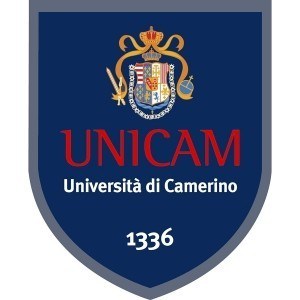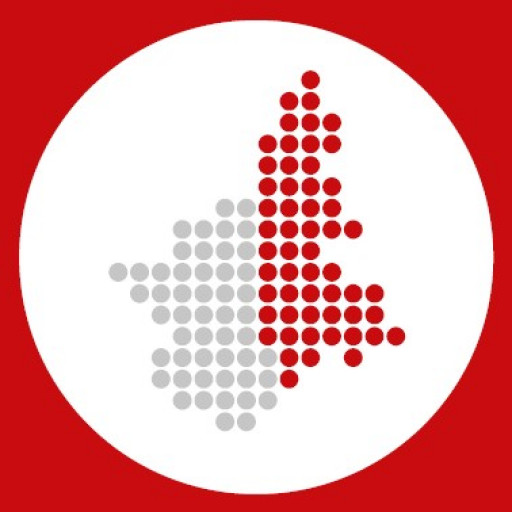Photos of university / #uva_amsterdam
The Master's in Life Sciences: Systems Biology at the University of Amsterdam offers students an in-depth understanding of the complex interactions that govern living organisms. This innovative programme is designed to prepare students for a career in cutting-edge biological research, academia, or industry by providing a multidisciplinary approach to studying biological systems. Throughout the programme, students will explore fundamental concepts in systems biology, including gene regulation, cellular networks, and computational modelling. They will acquire advanced knowledge of molecular biology, bioinformatics, and mathematical modelling, enabling them to analyze and interpret complex biological data. The curriculum emphasizes practical skills through laboratory work, computer simulations, and project-based learning, complemented by theoretical lectures and seminars led by renowned scientists. Students will have opportunities to specialize in areas such as neurobiology, physiology, or biomedical sciences, tailoring their education to their interests and career goals. The programme also promotes collaboration and critical thinking, essential for tackling pressing challenges in health, sustainability, and biotechnology. With access to state-of-the-art facilities and a vibrant academic community, students will engage in interdisciplinary research projects that have real-world applications. Graduates of this programme will be well-equipped to pursue careers in research institutions, pharmaceutical companies, biotech firms, or continue into doctoral studies. The master's in Life Sciences: Systems Biology at the University of Amsterdam is ideal for students passionate about understanding the complexity of biological systems and eager to contribute to scientific advancements that address global health and environmental issues.
The Master's programme in Life Sciences: Systems Biology at the University of Amsterdam offers an in-depth exploration of complex biological systems through a multidisciplinary approach. This programme is designed to equip students with the theoretical knowledge and practical skills necessary to understand, analyze, and manipulate biological systems across various levels, from molecules to entire organisms and ecosystems.
Throughout the programme, students will engage with a broad curriculum covering key areas such as molecular biology, genetics, bioinformatics, systems biology, and computational modelling. The coursework emphasizes both foundational biological concepts and cutting-edge technological methodologies, enabling students to develop a comprehensive understanding of the dynamic processes that govern living organisms. Core courses include topics like biological data analysis, systems medicine, and synthetic biology, providing students with the tools to interpret large-scale biological data and apply it to real-world problems.
A significant component of the programme involves practical training through laboratory work, data analysis projects, and internships. Students will learn to utilize advanced laboratory techniques and bioinformatics tools to analyze complex biological data sets. The programme also fosters skills in programming, statistical analysis, and systems modelling, which are essential for modern biological research.
The programme is highly research-oriented, encouraging students to participate in ongoing research projects within the university’s vibrant research community. Collaborative projects and interdisciplinary teamwork are integral parts of the curriculum, preparing students for careers in academia, biotechnology, pharmaceuticals, or healthcare industries.
Graduates of the programme will have gained the ability to design and conduct experiments, interpret biological data, and develop innovative solutions for health, environmental, and biotechnological challenges. The Master's in Life Sciences: Systems Biology provides a solid foundation for doctoral research or professional careers in systems biology, personalized medicine, bioinformatics, and related fields.
In addition to the academic curriculum, students benefit from the university’s strong international network, accessing lectures by renowned experts and participating in seminars, workshops, and conferences. The programme’s diverse learning environment aims to cultivate critical thinking, creativity, and scientific integrity, preparing students to contribute to advancements in biological sciences globally.
Program requirements for the MSc in Life Sciences: Systems Biology at the University of Amsterdam include a relevant bachelor's degree in a life science discipline such as biology, biomedical sciences, bioinformatics, or related fields. Applicants are expected to demonstrate a solid foundation in biological sciences, mathematics, and computer science, as the programme integrates biology with computational techniques. Proficiency in English is mandatory, with proof provided through standardized tests like IELTS or TOEFL, unless the applicant's previous education was conducted entirely in English. Practical experience in laboratory research, data analysis, or programming is highly valued and can enhance the application. Additionally, applicants should submit a motivation letter outlining their interest in systems biology and their academic and research experiences relevant to the field. The admissions process may include an interview or assessment of academic transcripts, CV, and references to evaluate the candidate's suitability for the programme. The programme is designed for students who have a strong interdisciplinary background and are eager to develop advanced skills in integrative biological research, computational modeling, and data analysis techniques. Applicants are advised to review specific entry criteria on the university's official website to ensure compliance with all admission requirements and deadlines. The University of Amsterdam emphasizes diversity and encourages applicants from various backgrounds who demonstrate academic excellence and a genuine interest in the convergence of biological and computational sciences.
Funding options for the Life Sciences: Systems Biology master's program at the University of Amsterdam include a variety of financial support opportunities aimed at both Dutch and international students. Prospective students are encouraged to explore university scholarships, government grants, and external funding sources to finance their studies. The University of Amsterdam offers several scholarship programs, such as the Amsterdam Excellence Scholarship (AES), designed specifically for excellent international students and providing full or partial tuition fee coverage. Additionally, the Holland Scholarship is available for students from outside the European Economic Area (EEA), offering a one-time grant to support their studies in the Netherlands.
Dutch students and some EEA students may be eligible for funding through government loan programs, such as the Dutch student loan system, which offers low-interest loans to support living expenses and tuition fees. International students can also consider scholarships from their home countries or regional scholarship programs aimed at promoting international higher education exchanges. The university's financial aid office provides guidance and assistance in applying for these grants and scholarships. Furthermore, students are encouraged to seek external funding sources, including research grants, private foundations, and industry-sponsored scholarships pertinent to life sciences and biological research.
Part-time work during the study period can also supplement student income, with the university facilitating employment opportunities on campus under the Dutch work regulations for international students. It’s important for students to carefully review the specific eligibility requirements, application deadlines, and award conditions for each funding option. The overall cost of the program includes tuition fees, which vary depending on the student’s nationality, and living expenses in Amsterdam, which students should budget accordingly. The University of Amsterdam provides detailed financial planning resources and personalized advice to help students manage their budget effectively throughout their studies.
The Master's programme in Life Sciences: Systems Biology at the University of Amsterdam offers students an in-depth understanding of biological systems through an integrative approach combining biology, mathematics, and computer science. This interdisciplinary programme aims to prepare students for innovative research and professional roles in academia, industry, and healthcare by providing them with a comprehensive skill set in analyzing complex biological data, modeling biological systems, and understanding the dynamic interactions within living organisms. The curriculum includes coursework in systems biology, bioinformatics, molecular biology, and mathematical modeling, alongside practical training through laboratories, projects, and internships. Students learn to utilize advanced computational tools to simulate biological processes, interpret experimental data, and develop predictive models of biological systems, which are crucial skills amid the rapid advancement of personalized medicine and biotechnology. The programme emphasizes research-led education, with students engaging in cutting-edge projects and collaborations with Utrecht University, Vrije Universiteit Amsterdam, and various industry partners. Graduates of this programme are equipped to pursue careers in research institutes, pharmaceutical companies, biotechnology firms, and healthcare organizations, contributing to innovations in disease understanding, drug development, and precision medicine. The programme is structured over two years, with a balance of coursework, research training, and thesis work, culminating in a master's degree that qualifies graduates for doctoral studies and professional scientific roles. The University of Amsterdam boasts excellent research facilities, a vibrant academic community, and strong ties with industry, providing students with ample opportunities for networking, professional development, and real-world experience. The programme fosters an international environment and encourages students from diverse backgrounds to contribute their perspectives on complex biological challenges, preparing them to address some of the most pressing issues in health and disease through scientific and technological advancements.









